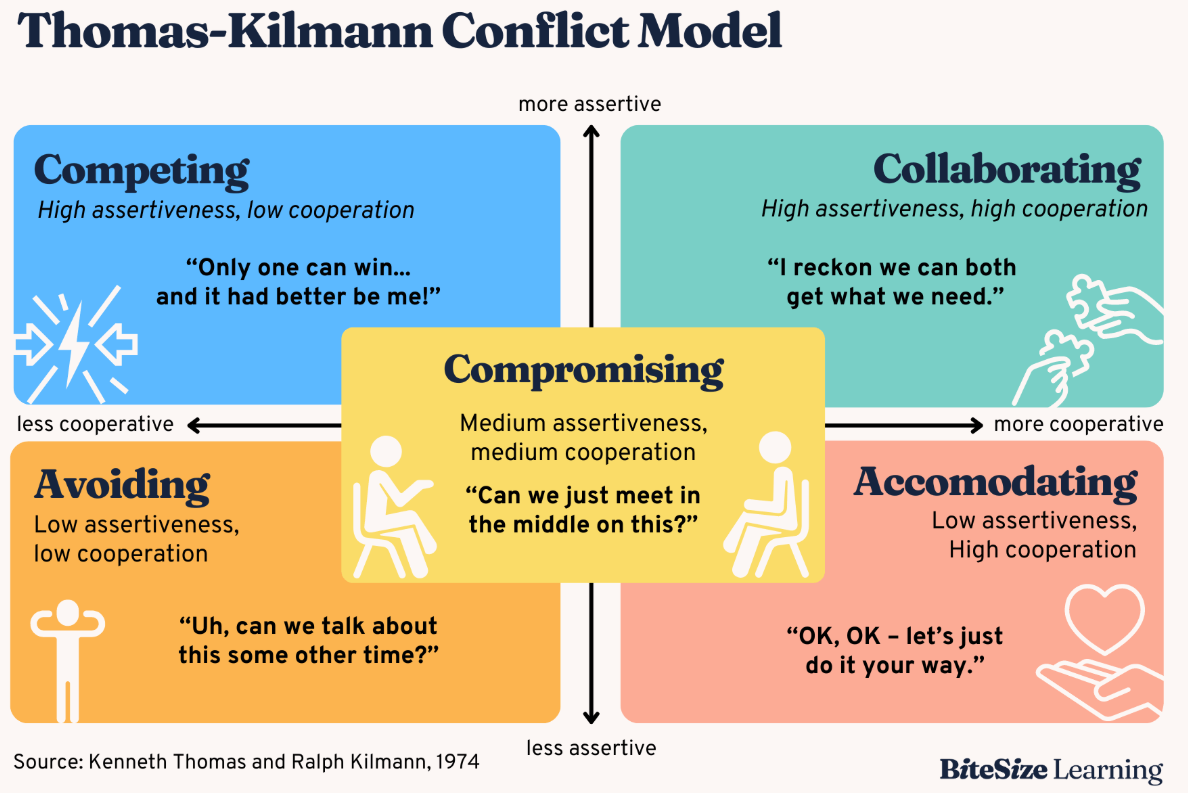How to Manage your Emotions - Emotions are a part of life and sometimes they can feel intense. While you cannot necessarily control what or how you feel, there are ways to manage your emotions. Some ways include identifying what you are feelings and naming it, giving yourself compassion to feel a certain way, and identifying what things influence your emotions (i.e. getting less sleep, feeling stressed from an exam, being hungry, loud noises, etc). While you cannot control how you feel, you can decide how you want to act while feeling these emotions.
Win-Win Negotiation – A careful exploration of both your own position and that of your opposite number, in order to find a mutually acceptable outcome that gives you both as much of what you want as possible. If you both walk away happy with what you’ve gained from a deal, then that’s a win-win.
Active Listening – Conflict can occur when one side doesn’t feel heard, or they feel their opinion isn’t valued. So, when a person or all parties involved come to you, you should try to be an active listener. Active listening involves more than just hearing someone speak, it involves listening to the full message, making statements to see if you understand what is being said, and asking questions to delve deeper in what the person is discussing.

-
Competing: Is assertive and uncooperative, this style will satisfy their own concerns at the expense of others
-
Collaborating: Is both assertive and cooperative, will find a win-win solution that completely satisfies the concerns of all individuals involved in a conflict
-
Compromising: Is intermediate in both assertiveness and cooperativeness, will try to find an acceptable solution that partially satisfies all individual’s concerns in a conflict
-
Avoiding: Is both unassertive and uncooperative, will sidestep the conflict without attempting to satisfy any individual’s concerns
-
Accommodating: Is unassertive and cooperative, tries to satisfy the concerns of others at the expense of their own concerns
-
Additional YouTube Videos and Ted Talks:






